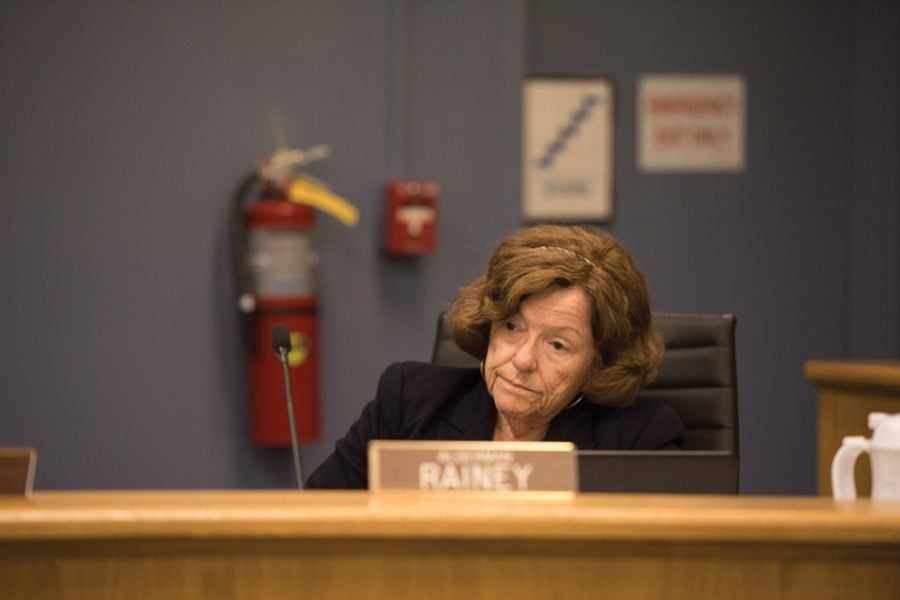Aldermen vote to add tax for ride-sharing trips to budget proposal
Katie Pach/Daily Senior Staffer
Ald. Ann Rainey (8th) speaks at a City Council meeting. On Monday, Rainey expressed support of a proposed tax on rides from services like Uber and Lyft.
November 21, 2017
Aldermen voted Monday to add a tax on trips taken with ridesharing services such as Lyft and Uber to the proposed 2018 budget.
The tax will raise the cost of each ride by 20 cents and would take effect following the city’s approval of the 2018 budget. Ald. Ann Rainey (8th) said the tax would not have a major effect on multi-million dollar rideshare companies.
“This 20 cents, believe me — and the drivers have had this beaten into their heads by the companies — is not going to kill your business,” Rainey said.
City manager Wally Bobkiewicz told The Daily that preliminary estimates from discussions with Lyft and Uber suggest the tax will raise about $100,000 in funds. He said the revenues will be added to the city’s general fund, which — if approved — would help fill the 2018 budget’s $6 million deficit.
Chicago raised its own rideshare tax in 2015 in an effort to appease aldermen who expressed concerns about rideshare services negatively affecting traditional taxi businesses. The city currently charges 52 cents for every ride, with the resulting funds going toward its budget.
Nolan Robinson, an Evanston resident and Lyft driver, said he started the job when he lost his previous position in restaurant management. The father of four said his new job allowed him to gain control of his life because it offered flexible hours and a reliable income. He said his salary from Lyft salary goes toward college tuition for two of his children.
“(Ridesharing) allows countless drivers to keep their families afloat,” he said. “Keeping ridesharing affordable for people from all backgrounds and neighborhoods is crucial.”
Matt Patton, Lyft’s Midwest public policy manager, spoke at Monday’s meeting in opposition of the proposed tax introduction in Evanston.
Patton said the tax could deter customers, and fewer riders equates to lower paychecks for drivers.
“Lyft is more than just a safe ride to work, home or a doctor’s appointment,” Patton said. “It allows people to be their own boss, gives them flexibility in their schedule and allows them to earn supplemental income. While 20 cents may seem minimal for some, for someone in an underserved community who uses ridesharing to get to work, it can mean one less paycheck.”
Although aldermen rejected a proposed 7.5 percent tax on vacation rental units like Airbnb, they approved other taxes and fees at the meeting, including increasing the municipal parking tax and doubling expired parking meter fees from $10 to $20.
Email: [email protected]
Twitter: @kristinakarisch


